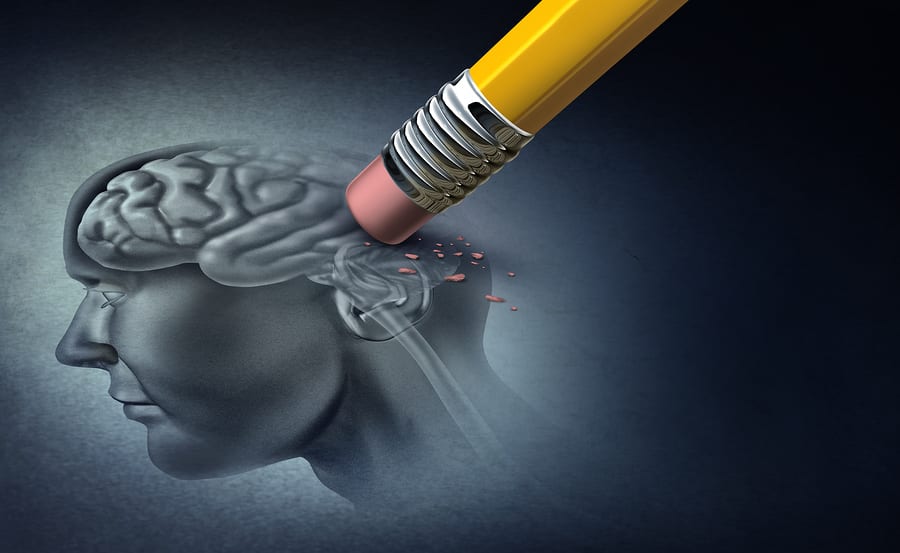When a loved one is diagnosed with Alzheimer’s disease, you often hear the word dementia along with it. But many people are often uninformed about the difference. Dementia is a term that describes the deterioration of memory, communication skills, and the ability to perform daily tasks. Alzheimer’s disease is the most common form of dementia. The disease worsens over time and affects thought processes, memory functions, and language. Although there is some overlap, it is important to be able to distinguish between the two; for reasons of management and treatment.
Dementia
Dementia is a syndrome, rather than a disease. It is a combination of symptoms commonly seen together; affecting overall cognitive tasks and mental faculties, such as memory or reasoning. According to the World Health Organization (WHO), there are over 47.5 million people in the world who live with dementia. A person can have more than one form of dementia. Alzheimer’s disease can be just one cause of dementia that a person is suffering from.
Dementia worsens as it progresses. An elderly person living with dementia will slowly begin to lose mental faculties and may even lose the ability to perform simple or very practised tasks independently. It can be a major form of disability in the elderly. Dementia can develop in younger people as well, although there is more risk for developing it as you age.
Dementia Symptoms
Early symptoms of dementia are often overlooked by those who do not know what to look for. The early stages of dementia are often very mild. It often begins with small instances of forgetfulness. People with dementia can often lose track of time easily, or get lost in familiar settings. As the symptoms progress, confusion and forgetfulness become more commonplace. Names and faces may become harder to recall. Self care begins to deteriorate as the sufferer will often forget to do daily tasks such as bathing, eating, and more. A person dealing with dementia will often ask questions repetitively. Poor decision-making can also be a sign of growing dementia.
In the more advanced stages of dementia, the person will be almost completely unable to take care of themselves. They will struggle to understand basic instructions, and can forget familiar faces and names, such as those of their children and other family members. Behavioral changes can cause the sufferer of dementia to become depressed or aggressive.
Causes of Dementia
Dementia can be caused by many different things; as it is a result of damaged brain cells. Diseases such as Alzheimer’s, Parkinson’s, and Huntington’s can all result in dementia. Each of these diseases affects a different set of brain cells. Alzheimer’s is the most common, being the cause of about 50 to 70% of all dementia cases.
Additionally, Dementia can be formed without these diseases. Certain infections such as HIV can lead to dementia. Strokes and vascular diseases can result in the development of dementia. Depression can eventually result in dementia. Chronic drug use can also deteriorate brain capabilities and can lead to the manifestation of dementia.
Alzheimer’s
Alzheimer’s is a disease that progressively causes memory impairment and the degradation of cognitive brain functions. There is no known cause; and no cure to the disease. The National Institutes of Health estimate that there are at least 5 million people with the disease in the US alone. The symptoms usually begin to form after the age of 65, but they can develop earlier.
Alzhemer’s occurs when protein deposits on brain cells form plaque and tangle up. Connections in the brain become blocked, and the cells can begin to die. In the most advanced cases, the brain can even shrink. Alzheimer’s is impossible to fully diagnose until after death, as the brain would need to be examined under a microscope to fully determine it. But specialists have been found to correctly diagnose Alzheimer’s disease over 90% of the time.
What is the Difference?
Both Dementia and Alzheimer’s cause a decline in mental faculties, memory impairment, and a loss of communication skills. However, Alzheimer’s disease also brings with it a host of other symptoms. These include: difficulty remembering recent events or conversations, depression, aggressive behavior, apathy, impaired judgement, disorientation & confusion, and more. In the more advanced stages of the disease, symptoms such as difficulty speaking, swallowing, or walking can occur. Some other diseases that cause dementia can have similar symptoms to Alzheimer’s.
Living With Dementia
No matter how your loved one develops dementia, it can be hard for them to stay independent. They will need more focused care as they continue to experience further degradation of their mental functions. Home healthcare assistance, such as an aide or nurse can be a good way to ensure that your loved one is well looked after when you cannot be available to them all the time. Moving into a nursing home or assisted living situation can be confusing to those with weakening memories. In most cases, keeping them at home with more hands-on healthcare assistance can be better in terms of keeping them comfortable.
Safe Harbor Healthcare Services does not provide medical or healthcare advice via articles. This material has been prepared for informational purposes only, and is not intended to provide, and should not be relied on for medical advice.
Safe Harbor Healthcare Services has been providing excellent home care on Staten Island since 1967. Our services help the elderly and disabled live safely and independently; while giving their families the peace of mind they need. For more information contact Safe Harbor at (718)-979-6900.

